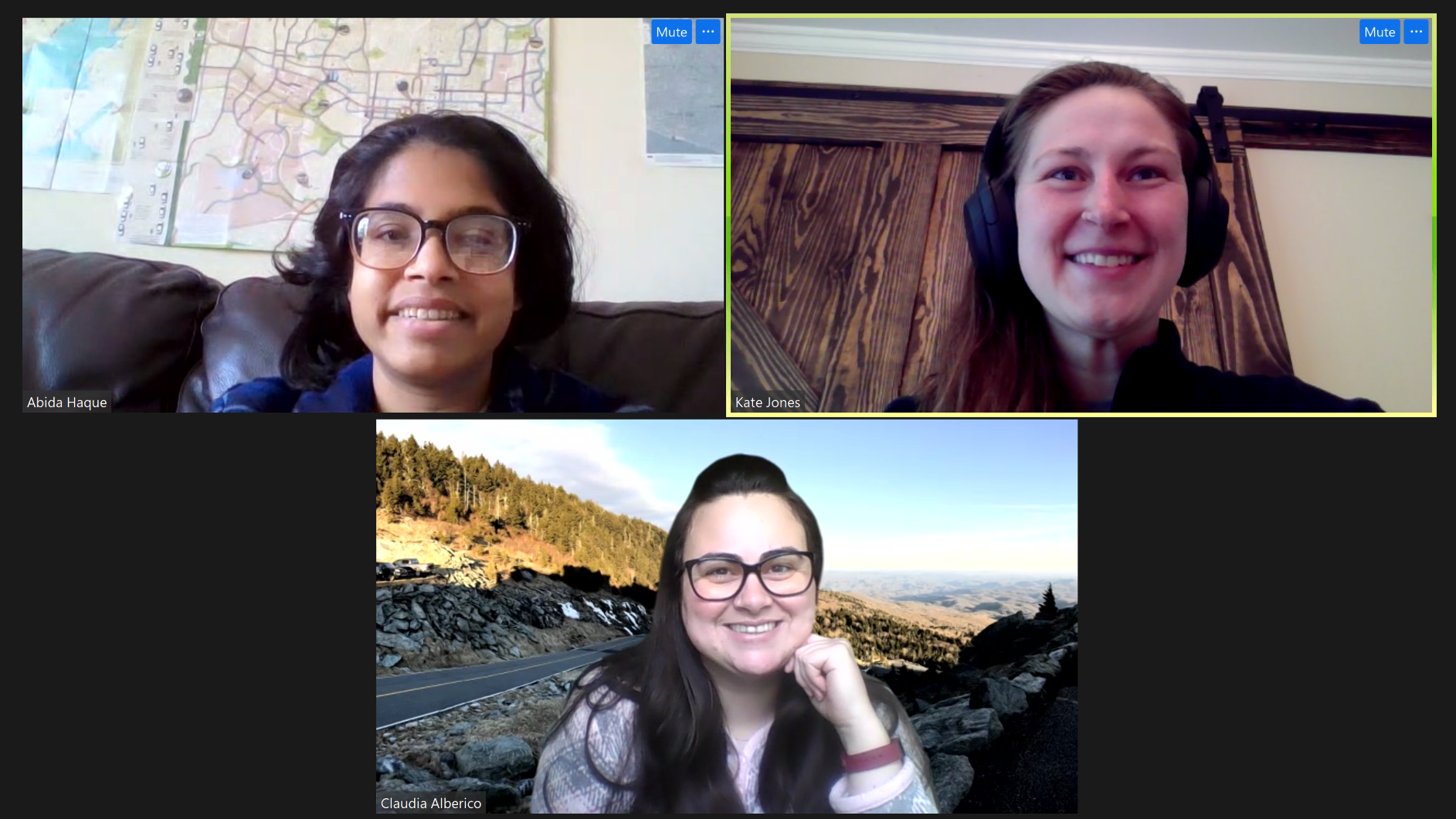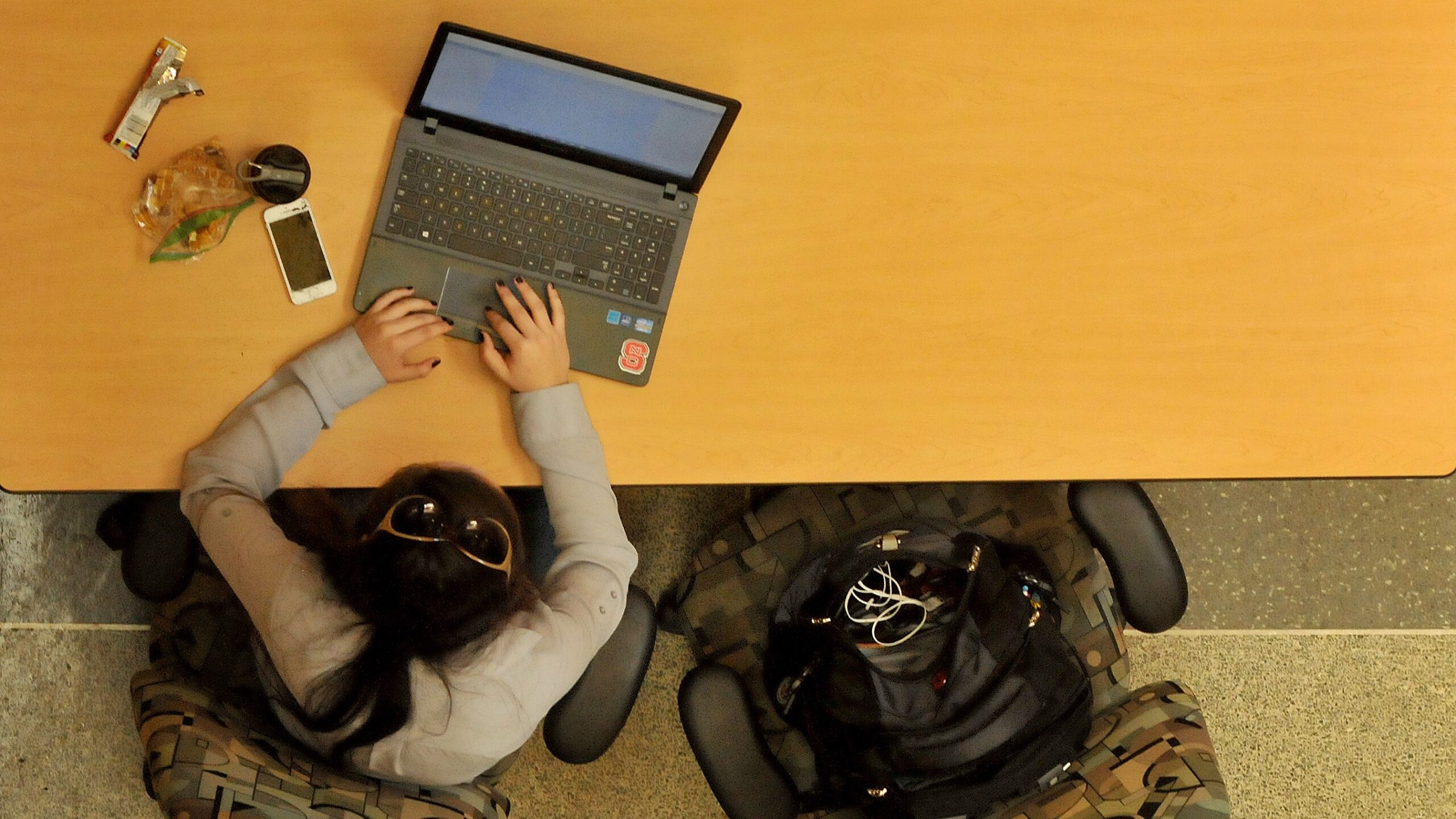Expand Your Pack: Start or Join an Online Writing Group!

Are you looking for a way to get started on a summer writing project? While we often think of academic writing as a solitary pursuit, we can benefit from the community of other writers, whether they share advice about their processes, give feedback on our work, commiserate with our struggles, or simply work beside us virtually. In the wake of the COVID-19 pandemic and amid busy schedules, online writing groups have proven an indispensable source of support for academic writers seeking accountability, motivation, and community.
Last fall, the Graduate School Professional Development Team launched the GradPack Slack Space for grad and postdoc trainees to join or start peer-lead online writing groups. Members can browse Slack channels to find virtual writing support groups with a variety of formats or disciplinary focuses. Alternatively, members can propose new writing groups based on their needs and interests and create new Slack channels for their groups.
To explore the benefits of online writing groups and best practices for leading them, we reached out to six current and former peer group leaders for their perspectives: Claudia Alberico (Parks, Recreation and Tourism Management PhD), Abida Haque (Computer Science PhD), Iwinosa Idahor (Educational Leadership, Policy, and Human Development PhD), Kate Jones (Geospatial Analytics PhD), Dr. Alex Milliken (a recent graduate in Computer Science), and Honey Minkowitz (Public Administration PhD).
Why Should I Start an Online Writing Group?
Help colleagues be productive and accountable
As Honey explains, “by becoming a leader, I could help other people that were in the same process.” Claudia adds that “working on Zoom was good for us to have that accountability, be able to share our anxieties, and learn from each other”. Iwinosa elaborates on the value of leading online writing groups for maintaining energy on writing projects: “I really enjoyed the momentum that we gained during the [spring 2020 online] retreat, and I didn’t want to lose that.” By forming a writing group, she connected with “other students who didn’t want to lose that either, so we were able to keep that going.”
Build community
Kate explains that “even though I’ve never met these people in person, I do feel very connected to them and their projects”.

For Iwinosa, “a big component was making sure that we were holding each other accountable and providing a community.” Honey agrees that the “biggest lesson for me was providing that opportunity for collaboration and connection” among writing group members. Moreover, Alex suggests that leading a virtual writing group can be an “opportunity to interact with folks outside your discipline or lab group.”
Practice leadership skills
All writing group leaders cultivate transferable skills such as maintaining meeting schedules, communicating with group members, and listening to members to establish meeting formats that work with their needs. As Abida notes, “I like to work with other people [and] I also like to lead things, so I thought it would be nice to lead a group, use my ideas, and experiment with them.” Alex specifically found the leadership aspects motivating for their own writing accountability: “if I personally lead things, then I’m more likely to be accountable as well. Knowing that I was going to be able to help others, in turn, guides me to get my own stuff done.”
Carve out dedicated time to make progress on writing projects
Kate finds that leading a group helps her to be intentional about scheduling writing time: “I’ve been setting aside a very structured hour every single week, which makes it seem less daunting to really carve out more writing time when needed.” Abida, too, notes that as a writing group leader, “honoring those times is really important also for yourself,” even if group members are not able to attend every meet-up.
What Type of Writing is Best for Me?
Here are a few common writing group formats that you could start or join based on the types of writing support that you are looking for:
- Productivity Groups meet regularly in real time to write together, for example on Zoom or other video conferencing platform. Members often start the session by sharing their goals and end the session by reflecting on their progress, and may incorporate techniques, like the Pomodoro technique, to divide a longer session into manageable working blocks.
- Accountability Groups meet briefly (for example, 30 minutes every month) to discuss goals and setbacks on writing and provide external peer accountability. Members might participate in accountability groups asynchronously by exchanging messages in a group chat app to motivate each other, share common struggles, and report small victories.
- Feedback Groups provide feedback on each other’s writing, such as advice about the structure/organization or style, by meeting via Zoom or other videoconferencing platform. These groups may meet less often than working groups depending on members’ writing timelines and goals (ex. monthly versus weekly or biweekly meetings).
Your writing group may combine aspects of these formats depending on members’ needs and interests. For example, Abida uses Slack to organize “hashtag writing sprints,” or virtual Pomodoro working sessions that do not require members to be on Zoom: “I’ll put a message on #general [Slack channel], and I’ll say, ‘Hey, everybody, I’m going to start sets of 20 minutes’.” She shares a link to the cuckoo.team collaborative timer tool to announce the start and end of each working block and break times. With this tool, users do not need to be on Zoom to participate in a virtual working session.
You can also join multiple writing groups for help with different aspects of the writing process. As Kate puts it, “don’t necessarily feel like you need to be in just one group. I know of four or five members who write in multiple groups” based on their writing goals.
How Can I be a Good Group Leader?
Be clear and consistent about the purpose and logistics of the group: As Alex suggests, “the group worked well when we had a scheduled meeting time,” and Iwinosa adds that it’s good to “stick to one time” for consistency.
Before the group begins, you should send a survey to prospective members about their availability. You should also have an informational meeting to determine regular meeting times and formats that are best for members’ needs and interests. For example, do members want to meet regularly to write together on Zoom, meet to discuss common writing challenges, or give feedback on each others’ work?
As the group starts, you should have a communication plan, such as when and how you will remind members about meetings and how members can communicate with each other (ex. Slack messaging, emails).
Abida likewise recommends having a consistent meeting time “because when people know [the meeting times], they can trust you, they can expect you to show up and to help them out.”
Create “rituals” to structure meetings: Your group should create a routine for every meeting. As Claudia explains, “I took a leadership role to actually get the group started, to say, ‘okay, we’re meeting to get to know each other,’ and we’ll decide what we’re going to do from there.” In her group, members greeted each other, discussed writing progress, and set goals for the working session before beginning to work using the Pomodoro technique. They also took a few minutes at the end of the session to reflect on their work period and set new goals.
Iwinosa suggests creating norms to manage expectations: “We set up guidelines [such as] ‘we’re doing it virtually,’ ‘we keep our cameras on,’ just to be able to see each other and to hold each other accountable”.
Honey’s group for public administration majors also has a routine. As she explains, “we talk for a while, catching up with lives and how things are going during COVID. And then we write in silence for a block.” These “rituals” build structure into the meeting and can help prospective members understand what they will get from the group.
Build rapport in a virtual setting: Likewise, it’s especially important now to create rapport, or an emotional connection, with group members. Admittedly, this can be challenging in a virtual setting like Zoom, but it’s crucial to create that connection and community when we are physically isolated from colleagues. Alex recommends establishing this rapport during the first meeting: “Try to get to know them [your group members], as opposed to just get to know what they’re working on. Ask them about extracurricular activities, or other things that they do that they enjoy.” These brief conversations can become part of your group’s routine, as Kate suggests: “Take that five or six minutes at the beginning of the writing meeting to still establish community”.
Be flexible, supportive, and responsive to group members’ needs: Effective writing group leaders listen to group members and negotiate norms that work with their needs. They also make adjustments when the current format isn’t working. For example, Honey mentions that “I’ve tried to hone it into what people are interested in.” Her group started as a motivational listserv for writers across disciplines but evolved into a feedback group for writers in her field of public administration: “A discipline-based writing group might be more beneficial” to connect writers with similar background knowledge and goals. Iwinosa likewise advises to “be as flexible as possible and offer a variety of options”. For example, you may need to shift the focus from milestone projects, like dissertations, and word counts to a broader set of “writing-related activities,” like analyzing data, summarizing literature, and practicing conference presentations that keep group members productive and motivated.
Good group leaders also cultivate empathy and help members celebrate small victories, “serving as that cheerleader for your group,” as Iwinosa puts it. Alex, moreover, suggests that leaders can “show that they [your writing groups members] can be proud of themselves for completing tangential, relevant tasks to their writing project” even if they did not accomplish their initial goal for the session.

Sometimes, group leaders have to reach out to members who are less responsive. This can be difficult, but, as Alex recommends, “if you notice that maybe someone is falling behind, or maybe they’re not showing up, reach out” using tools like email or Slack direct messaging. Iwinosa agrees that it’s important to be understanding and “show grace to your group. Understanding that there may be days where you’ll be the only one in the session, and then there’ll be times where the entire group shows up”.
However, writing group leaders should not feel pressured to micromanage members. Rather, the goal is to cultivate a positive, supportive environment for group members who engage and to recognize when your group’s working routines may not be the best fit for everyone. Abida explains that “what’s worked better for me…is to just be someone that is encouraging” to colleagues facing similar writing struggles and create a supportive virtual space for members to work together on writing.
Model good writing habits: As Iwinosa explains, being a group leader involves “encouraging not only your group, but also yourself as a peer leader, to take care of yourself, modeling what it looks like to take breaks to practice self care in order to stay focused and motivated.”
Get Involved!
For step-by-step guides on getting started with an online writing group, see these resources from Inside Higher Education and UNC Writing Center.
If you have questions or would like to share about a writing group you are currently leading, contact Dr. Katie Homar on the Professional Development Team.
- Categories:


